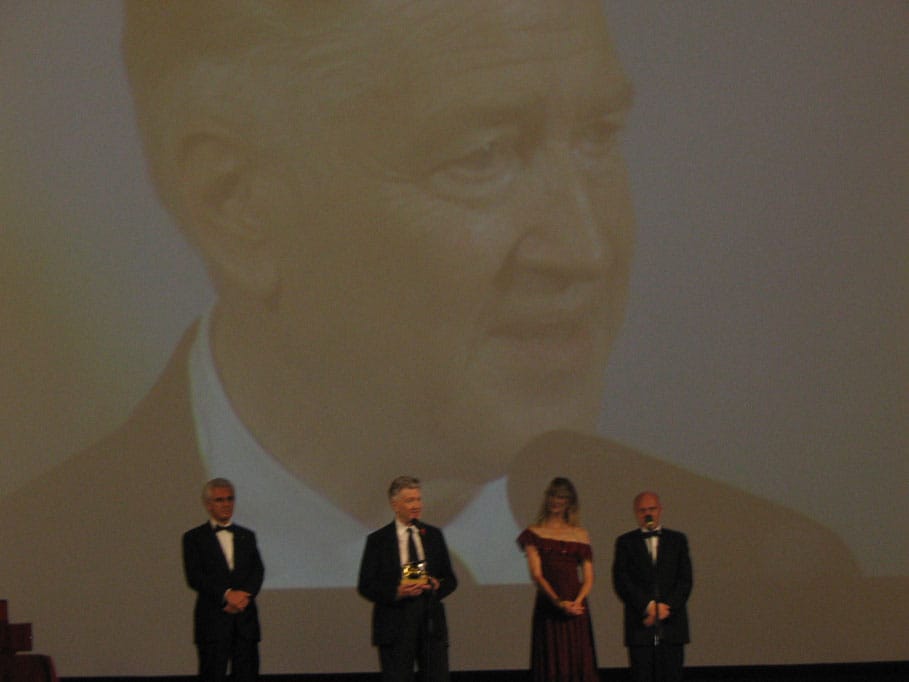On David Lynch's passing...
Is it grief over David Lynch's death? Or is it climate grief?

David Lynch died yesterday (Thursday, January 16, 2025). I've felt, if not sad exactly, rather moved. Which is pretty unusual for me.
Celebrities, some of whom I like quite a bit, die. Which I think sucks, but I generally don't make social media posts about their deaths (and certainly not blog posts), or reflect too much about their passing. I don't know them. Grief is personal. Valuable. What I might be thinking of grief or sadness may actually be neither.
Getting sad when a celebrity dies may be like crying in a movie. You're sad about something in your day to day life outside of the darkness of the cinema or your living room. But you can't articulate why. A sad movie or a celebrity death is a chance to express that emotion in some way. Transference.
Lynch's death has affected me in some way. I think it's because Lynch was an artist, a vocation or calling that is very tough, almost impossible to follow. But he did it.
The Guardian has collected a great selection of quotes by David Lynch from different sources over the years. Several of them address creativity, including this one, on ideas:
They’re like fish. If you get an idea that’s thrilling to you, put your attention on it and these other fish will swim into it. It’s like a bait. They’ll hook on to it and you’ll get more ideas. And you just pull them in.
I think this is absolutely useful information for anyone hoping to create or make art.
On what it takes to be successful in art:
You gotta be selfish. And it’s a terrible thing. I never really wanted to get married, never really wanted to have children. One thing leads to another and there it is … I did what I had to do. There could have been more work done. There are always so many interruptions.
It is indeed a terrible choice to have to make.

I think, however, it's David Lynch's belief in and devotion to humanity and empathy that is what resonates with me the most.
Sublime eternal love is a possibility for human beings, and every human being should know that – it exists within each one of us.
I think a failure to connect with others is probably the biggest challenge facing every human being (particularly men), the root of all evil. And throughout his artistic career, David Lynch focused on exposing and examining evil.

I recently watch Fire Walk With Me for the first time. I've never seen the Twin Peaks television show – back the in 1990 I was an undergrad and didn't spend much if any time at all in front of the television, preferring to go clubbing, watch movies, and spin discs at the community radio station.
As well, while I've watched a fair amount of Lynch's movies over the years, until the past few years (ignoring Netflix and getting a Criterion Channel subscription has been a game-changer) I haven't really even been a fan.
Until I watched Fire Walk With Me, I regarded Lynch's movies as being inscrutable puzzles to be figured out. Why is Lost Highway a never ending Moebius loop? What are the rabbits in Inland Empire supposed to represent. But after watching Fire Walk With Me, I realized (and maybe I'm dumb for catching on so late) that Lynch's movies are mostly dreams and nightmares. They have a message and a meaning, but they also must be felt.
It's a lot like how the John Keats character explains the nature of poetry to Fanny Brawne in Jane Campion's 2009 period drama Bright Star. When Brawne remarks to Keats that she has no idea how to "work out" a poem, Keats replies:
A poem needs understanding through the senses. The point of diving in a lake is not immediately to swim to the shore but to be in the lake, to luxuriate in the sensation of water. You do not work the lake out, it is a experience beyond thought. Poetry soothes and emboldens the soul to accept a mystery.
Lynch's movies can be experienced in much the same way. With Fire Walk With Me, however, Lynch is exploring and exposing a darker truth about the danger and violence that run through our society.
Most of all, however, Fire Walk With Me is humane: Laura Palmer, who acts as a essentially a MacGuffin in the earlier television series, is brought to life. Despite her seemingly idyllic small-town life, she never had a chance, Lynch seems to be saying. What's more, Laura Palmer's fate is not unusual at all. BOB is all around us.
Climate grief and feeling sad about David Lynch?
However, a lot of other filmmakers, writers, and other creatives are humane truth-tellers. They die and I don't write a blog post.
I think one reason why I feel the way I do is a sort of transference. Lynch lived in the Hollywood Hills, a region of LA that has been affected by the terrible fires that have basically burnt down or have threatened to burn down large swathes of the city.
The destruction in LA is terrible, cataclysmic. In financial terms, half a trillion dollars at least, rivaling the entire US annual defense budget, likely a bigger amount than the annual California state budget.
Even from a thousand miles away, the fires are frightening, deeply disquieting, particularly in the backdrop of the incoming Trump administration, and its promise to torment and punish Los Angeles and California despite the tremendous calamity – like something out of David Lynch.
I'm Facebook friends with a fairly well-known writer who lived in Pacific Palisades. His house and his mother's house were both annihilated, and so now he makes posts about the nearly futile efforts to pry assistance from insurers and government agencies after his family escaped with just their passports and the clothes on their backs.
My Facebook friend is probably one of the lucky ones. I can only imagine how many thousands of people are going to be left homeless by this fire in a city of sky-high rents, and massive tent cities that line the streets just away from downtown.
While something like two dozen people have died so far during these fires, the death toll is likely to be higher – far higher. Thousands may die due to stress and smoke inhalation.
David Lynch was likely one of the first of this tidal wave of deaths caused by the fires. He was famously a chain smoker, and lived with emphysema for years before he died yesterday. Last year Lynch had said he would no longer leave his house – the risks from contracting covid were too great.
But the fires cam to Hollywood Hills, and Lynch was forced to leave his home while the air was thick with deadly smoke. Smoke from faraway forest fires has drifted into my neighbourhood pretty regularly over the past decade. It feels like being in the inside of a barbeque.
Lynch was forced to evacuate his home in far worse smoke. Shortly after that, he died.

So, my sadness over his passing might be a form of climate grief. The scale of the destruction in LA is shocking, bewildering, disconcerting. And, while thousands of people from all over California, the US, Mexico, Canada, and other parts of the world are pitching in to help, it's hard to imagine there will be a good resolution to this calamity. It's easy to imagine this same calamity visiting closer to home.
And yet, Lynch's death is still a way to remember how to be an artist. How to be creative. How to be humane.
And to remember that "We're supposed to have so much fun" on earth, "like puppy dogs with our tails wagging."

